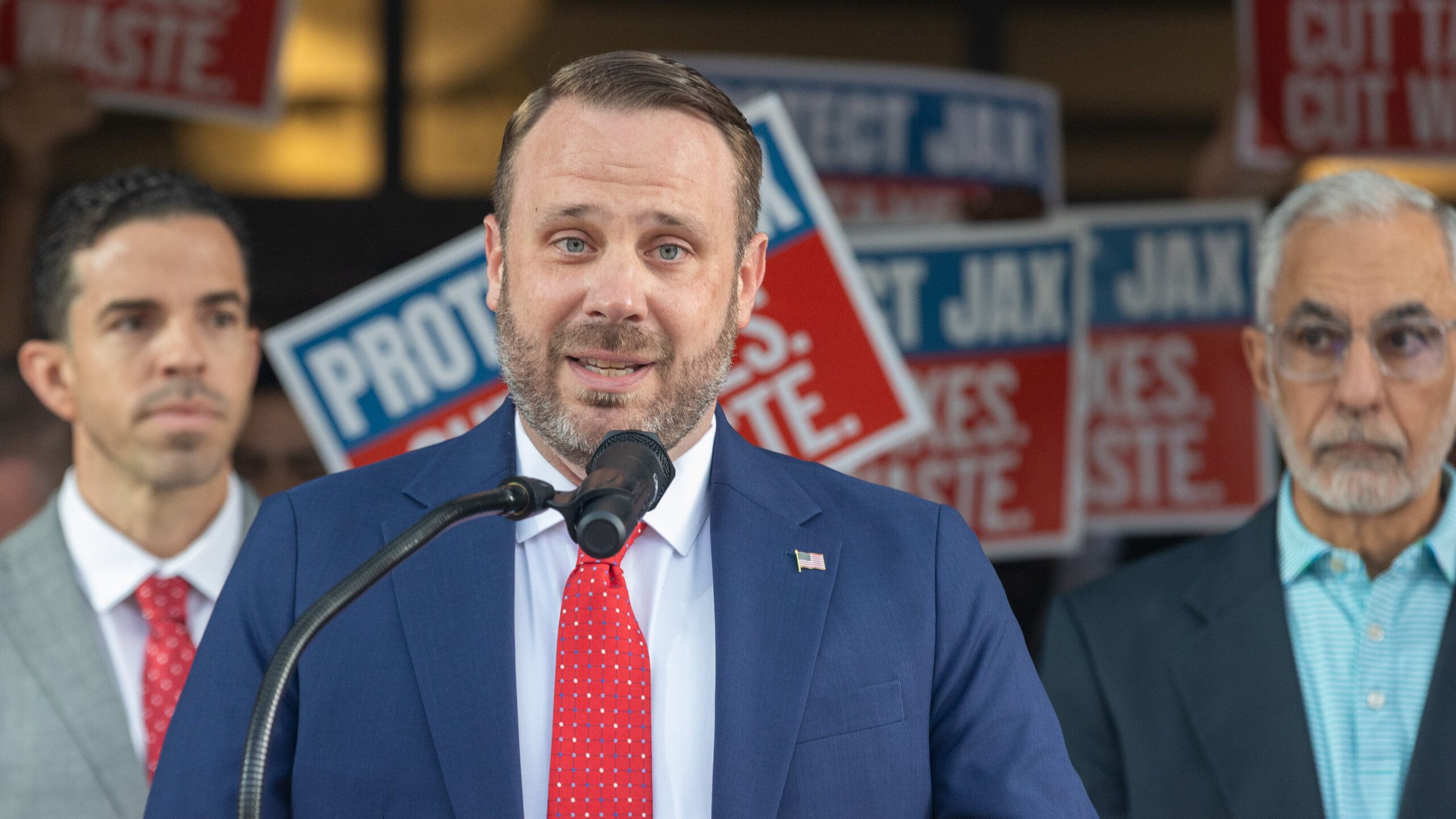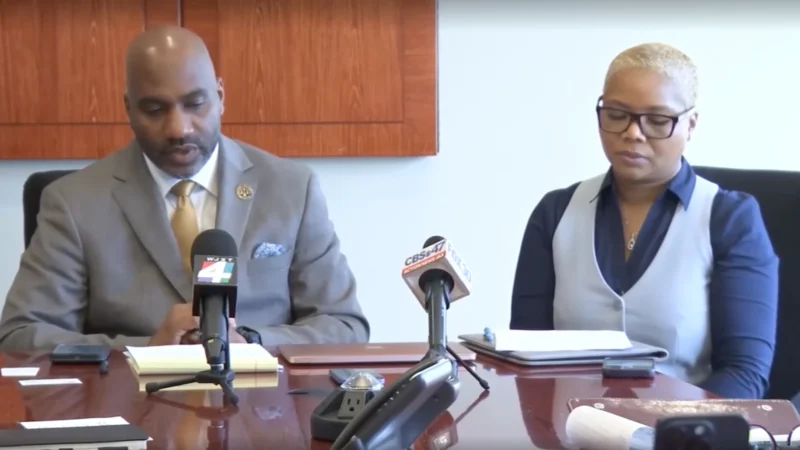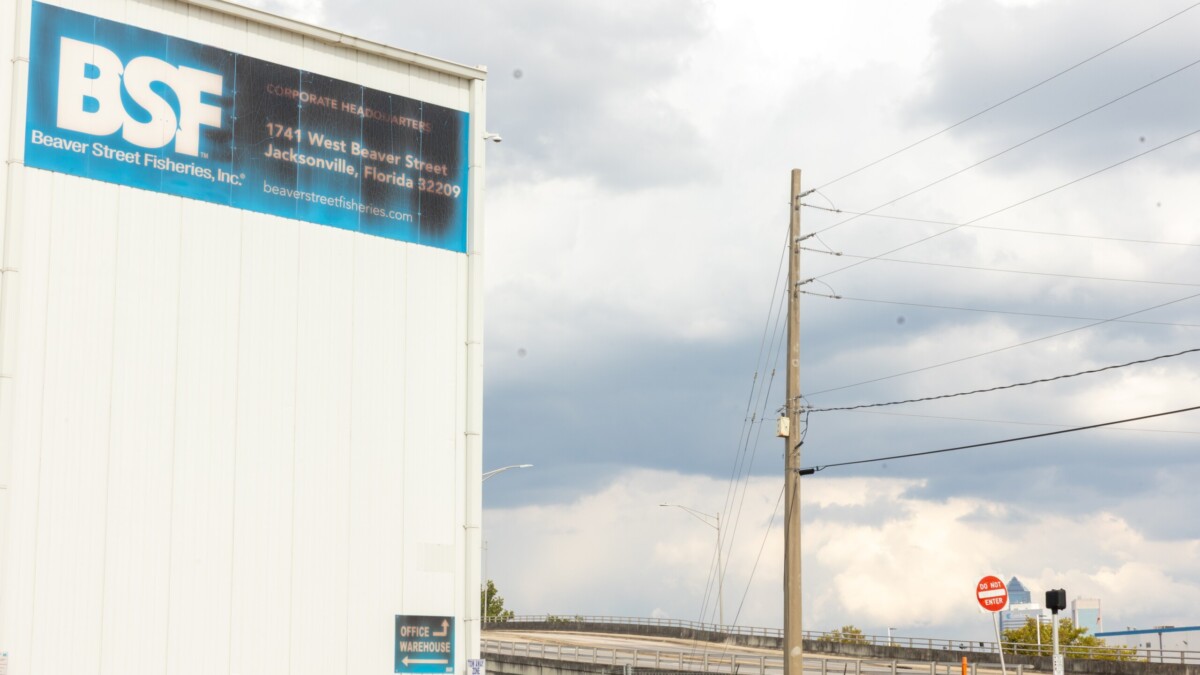Jacksonville City Council President Kevin Carrico and Mayor Donna Deegan are continuing their public parley on cuts to the property tax rate and spending in next year’s city budget.
Carrico was flanked Monday by Florida GOP Chair Evan Powers and members of the Council Finance Committee during a news conference on the steps of City Hall where he defended their proposed ⅛-mill cut to the city millage rate.
The proposed tax cut will reduce the city’s expected revenue collection in the 2025-26 fiscal year by about $13 million and, city officials say, save Jacksonville homeowners an average of $1.56 per month, or $18.75 per year.
The tax cut has been a central fight since Deegan, a Democrat, handed off her $2 billion city budget to the Republican-controlled Finance Committee on July 14.
“We want to give the money back to the citizens. Over $13 million has been cut from your taxes. That money is coming back to you,” Carrico said. “We shouldn’t be discussing any increases. We shouldn’t be discussing keeping it flat. We should be discussing giving those dollars back. That’s what we’re here to do.”
In a news conference after Carrico’s remarks, Deegan said the property tax cut puts city services at risk in the future should Jacksonville start to see leaner years due to a slowing economy.
Deegan says the millage cut and corresponding cuts to spending on things like affordable housing and senior meal programs are coming from Republican Party pressure out of Tallahassee and could slow the city’s quality of life and economic momentum.
“This is, frankly, simply a political move. Period,” Deegan said. “We want to make sure that people have a high quality of life. And in Jacksonville, for years, we have seen an ebb and flow. We make some momentum and some progress, and then it gets pulled back. Because there’s always a group of people that once that progress starts, they want to pull us back. And that’s what we’re seeing right now.
“Jacksonville has enormous momentum. I don’t want to go back to the days when we weren’t paving our sidewalks, when we weren’t feeding our seniors, when we weren’t creating more affordable housing, when our Downtown was dead, when we couldn’t, frankly, even pick up our own trash.” she said.
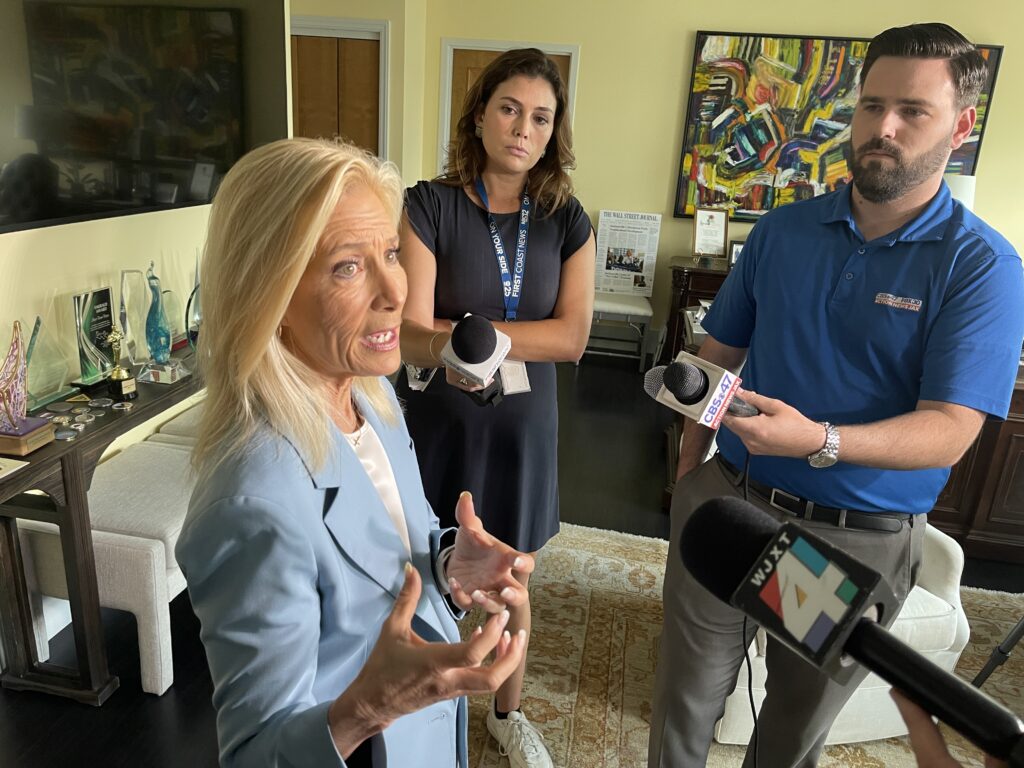
Jacksonville’s city millage rate has held steady at 11.3169 for three years. (A mil equals $1 in tax for every $1,000 of a property’s assessed value.)
The last time the city cut the property tax rate was in 2022, during Republican Mayor Lenny Curry’s final year in office — something Carrico and then-Council President Terrance Freeman touted during the news conference Monday.
That was a year after the Curry administration pushed through an extension and increase of Duval County’s local option gas tax to help fund $1 billion in infrastructure projects, including the Emerald Trail and the Jacksonville Transportation Authority’s autonomous vehicle replacement to the Downtown Skyway.
Although the tax cuts proposed by Carrico and the Finance Committee would reduce the city’s millage rate to 11.316775, people’s property tax bills could still rise if their home value increases in line with the state of Florida’s Save Our Homes amendment, which caps the assessed value of a homestead property at 3%.
When asked about that possibility Monday, Carrico said, “Anything we cut is relief.”
What was cut?
To make up for the $27.47 million shortfall in its tax cut and reduction in debt spending created on the first day of the hearings, the Finance Committee made cuts to many of Deegan’s priority initiatives.
Programs that were reduced or cut altogether include affordable housing programs, salary and benefits for staff in the mayor’s office, funding for Edward Waters University, homelessness initiatives and others.
Here are some of the largest cuts to the budget so far, before it’s vetted and changed again by the full City Council in September:
- $8.7 million for Edward Waters University.
- $6.25 million for downpayment assistance, litter campaign initiative, attainable housing utility program and emergency rental and eviction diversion.
- $2.234 million for homelessness programs.
- $2.5 million designated for countywide projects in the Community Benefits Agreement with the Jacksonville Jaguars.
- $390,673 — Jacksonville’s contribution to the Northeast Florida Regional Council.
- $300,000 — salaries in the mayor’s office.
- $250,000 — proposed funding increase for public library materials.
- $250,000 — proposed enhancement to Jacksonville Area Legal Aid.
- $250,000 — WeCareJax for JaxCareConnect uninsured health care assistance program.
- $230,000 — dental access program.
In Friday’s wrap-up meeting, the council’s Finance Committee restored some funding cut previously for a widely used city telehealth program for the uninsured, six safety net clinics and the Meals on Wheels nutrition assistance program for seniors.
The City Council Auditor’s Office told Jacksonville Today that, as of Monday afternoon, it is still calculating how the cuts and revenue adjustments will change the budget’s top-line $2.017 billion total
“What does that mean for what our citizens are telling us they need, like (public) pools or like meals for seniors or like housing that is affordable?” Deegan said. “All the money is gone for affordable housing right now. All the money has been taken out (of the budget) for housing that is affordable for our citizens. That drags on our local economy. That is not a people-focused approach.
“So I’m really frustrated to continue to hear the type of rhetoric that we’re hearing about fraudulent programs or programs that aren’t needed from government. If the private sector is not solving a problem, it’s government’s job to step in and at least begin to get a solution for that like these hungry seniors,” she said.
Carrico says the Finance Committee’s version of the budget is balanced and fully funds essential city services like police, fire and rescue, sidewalks and public infrastructure, and children programs.
“But if governments go unchecked, they’ll reach in and take more dollars out of your wallet,” Council Vice President Nick Howland said. “Governments think taking your money will solve society’s ills like affordable housing, hunger, hospital bills, free roofs and down payment assistance. Instead, taking taxpayers hard earned money out of their wallets makes them more likely to need affordable housing, subsidized meals, Medicaid and down payment assistance.
“That’s why we need to cut waste and reduce taxes wherever we can, whenever we can, and this year we can.”
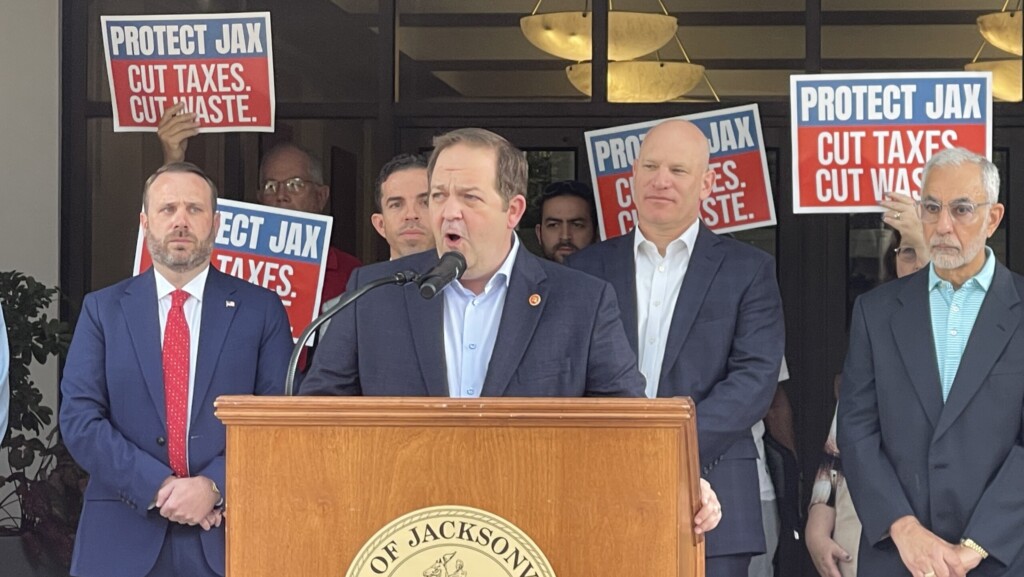
‘Big Beautiful Budget Amendments’
Finance Committee member Rory Diamond also took questions Monday about his budget amendments passed in the final minutes of the hearings last week. The amendments ban taxpayer funding for undocumented immigrants; Diversity, Equity and Inclusion initiatives; and abortion and related services.
One of the changes Diamond calls his “Big Beautiful Budget Amendments” is an attempt to resurrect his local immigration legislation vetoed by Deegan in June.
Diamond says his amendment doesn’t apply to the council rule that a bill cannot be reintroduced for one year after it fails because the budget change prohibits spending on undocumented immigrants only in the 2025-26 fiscal year. He says that makes it “materially different” from the blanket ban from his previous legislative proposal.
“It’s not the same bill. It’s in the budget, so it doesn’t count as the same bill. It also applies to all spending in the city and not just certain grant areas, so it’s materially different,” Diamond told Jacksonville Today.
Deegan said they’ve asked the city Office of General Counsel if she can line-item veto the provisions without having to strike down the entire budget. The mayor also questions whether non-budgetary items like Diamond’s amendments can be included in the city’s annual spending bill.
Deegan said she’s “disconcerted” that the amendment moved forward.
“All of these things were put in simply to throw a grenade in the middle of the process,” Deegan said. “They’re not budget items. There’s no money attached to them. They don’t belong in the budget, and, frankly, that whole council knows it.”



